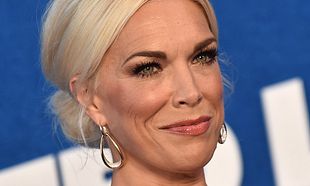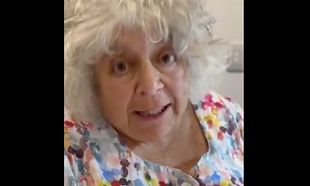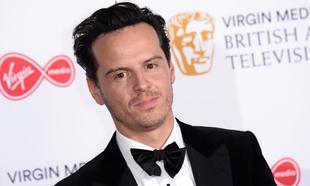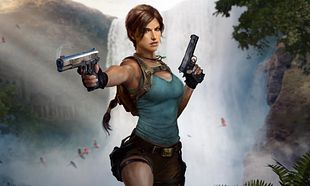A play that has a huge degree of ambition and an engaging story to tell, Death Row Cowboy is an enjoyable night out at the theatre.
Written by two of the cast members, Andrew Lynch and Mark McCabe, the story begins with a phone call to the police by 18-year-old Carl Brant, who calmly proceeds to tell the operator that he has just shot dead his own mother and a police officer.
Jump forward five years and we see Carl (Andrew Lynch) is imprisoned along with fellow inmate John (Gerard Byrne) on Death Row, awaiting a date to be given for their executions. The story that follows sees Bobby (Mark McCabe) the prison guard grow close to both men, as the fear of what comes next looms large on their futures, and while he should be their connection to the outside world, it fast becomes apparent that the only place Bobby feels at home is when he’s in the company of the Death Row inmates.
Hillary (Clara Harte) is the widow of the police officer killed by Carl, and her obsession is to find out not only why he killed her husband, but what he was doing there in the first place, given that he was off-duty. As Carl’s last day inches closer, her character becomes increasingly desperate to get some form of closure, and turns to Bobby, an old friend of her husband, for help. Harte grabs attention on stage with a powerful monologue at one point that marks her out as one to watch, while Lynch and McCabe clearly have a strong understanding that makes you believe the two characters could be close in real life, despite being on opposite sides of the bars.
The play itself is framed within the context of Amnesty international’s facts and figures regarding the death penalty in the United States (hence the setting), and they recorded nearly 120 in total in 2013. While this is the main story of the drama, it is not the main point.

The issues at play are more than just that of fear and death, or facing into the unknown, but all the characters are left with some degree of loneliness to deal with. How they cope with it is a different story for each of them, however. The issues of freedom and isolation are also at play as Carl and Bobby continue to interact and imprisonment, figurative and literal, is something that impacts both men.
The Boys School of Smock Alley Theatre itself is used well by the team and, in the nicest possible way, it does lend itself to being seen as a prison. The different levels place the prisoners above and around the audience, which has the interesting effect of almost making you feel that you’re inside the jail itself. The surrounding walkways inside are used to good effect, and they add to the feeling of being locked up and observed from above, as you would experience in a real prison.
While the American accents are pulled off admirably in general (a southern drawl is no easy thing to do without hamming it up, it should be noted) they do falter at times, but that doesn’t distract from the overall themes and messages of the play. A nice touch is to have the music performed live by Mick Fitzgerald, but while it is a small theatre, the acoustics could still have been slightly better on that front.
Overall, Death Row Cowboy is performed to a high standard by a good cast, and the director (Gary Duggan) and stage managers have used their budget and their space very cleverly, and to their advantage, in particular when it comes to the setting. Well worth the time spent, and definitely one that creates a few talking points after the curtain has fallen.
Death Row Cowboy is running at the Smock Alley Theatre from August 11-23.









































































